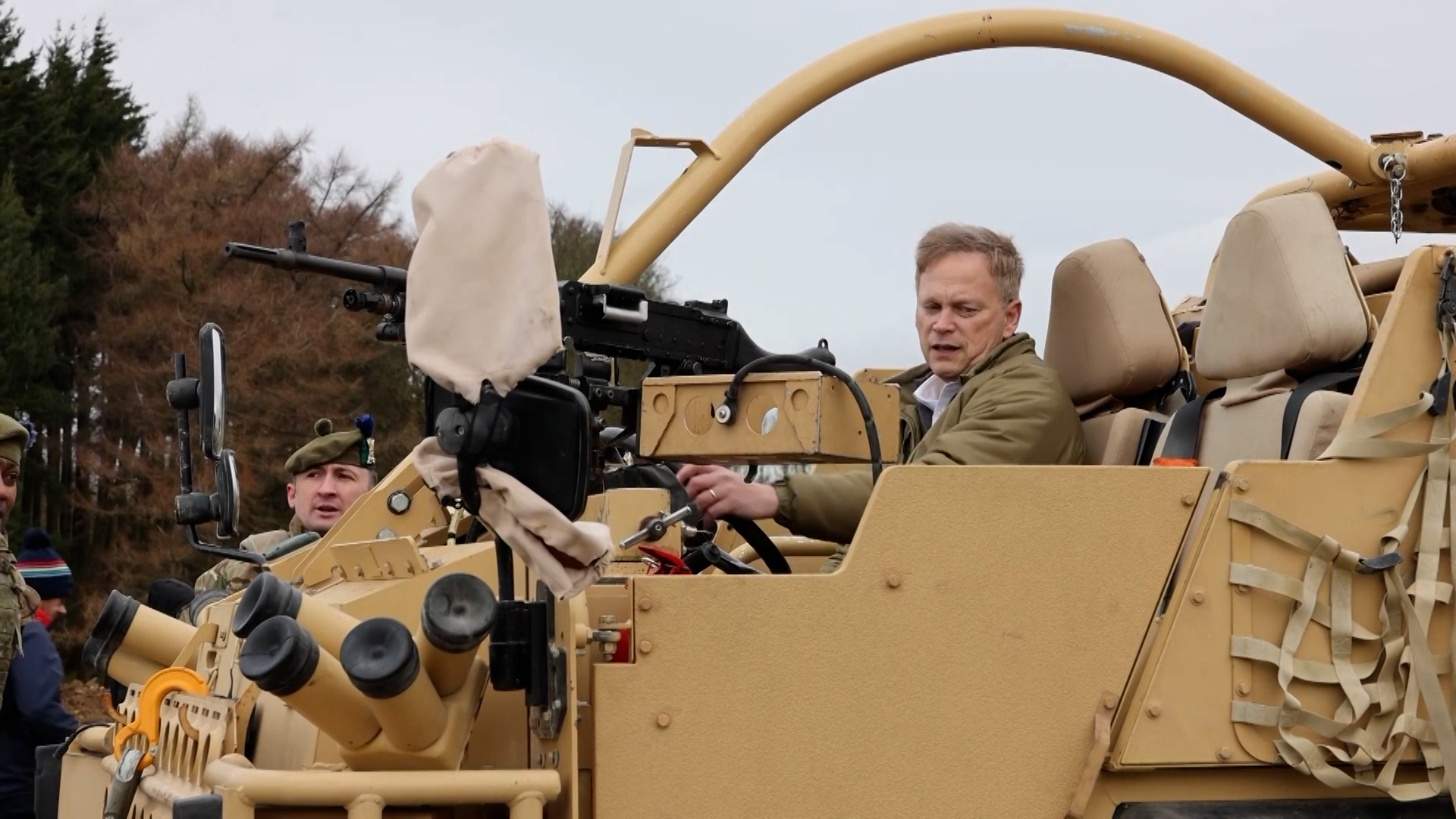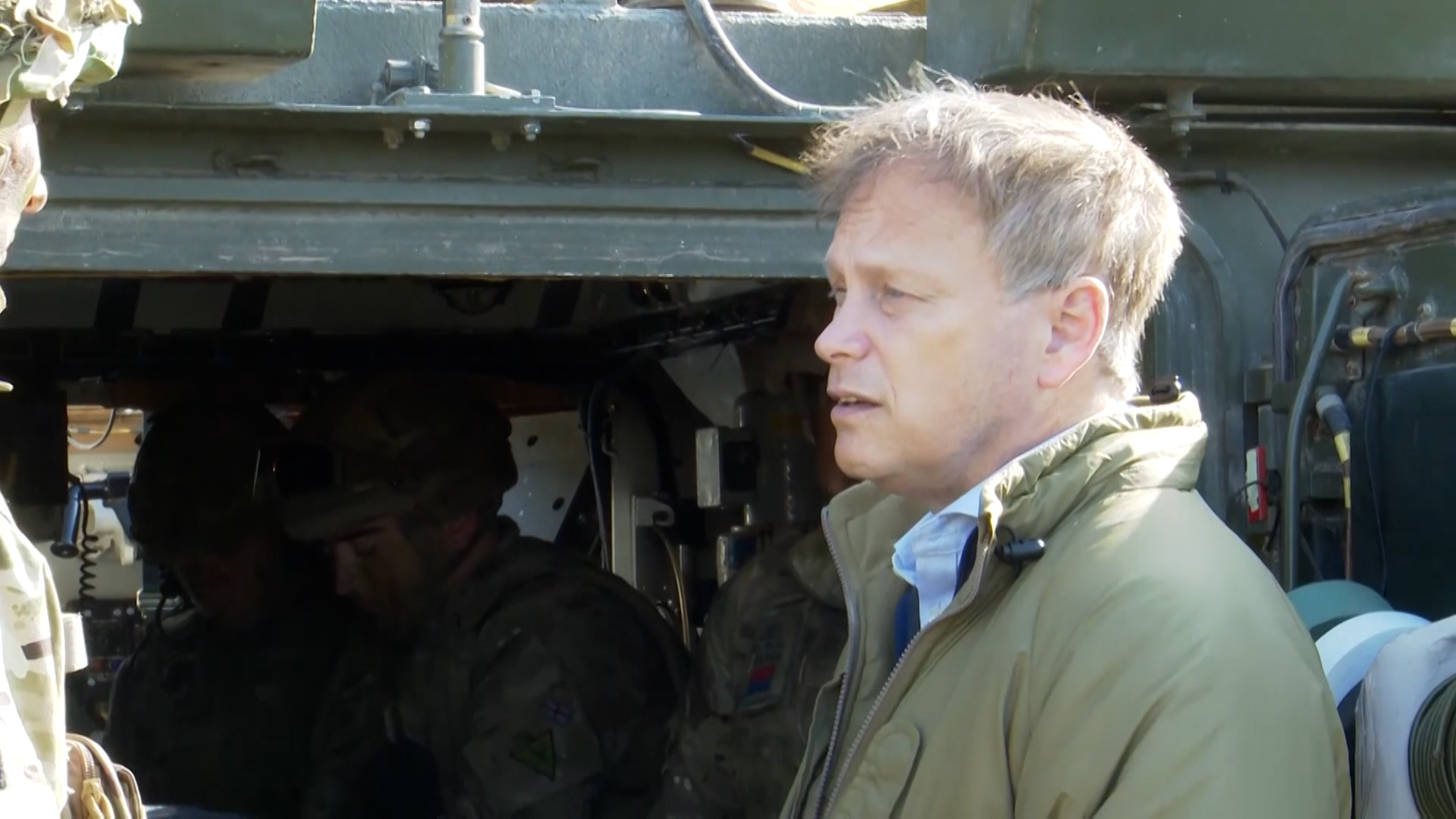Being Defence Secretary? It's not just another day at the office, says Shapps
Entering office in August 2023, Grant Shapps spent just under a year as UK Defence Secretary.
Having held a number of cabinet roles before that, he says there are still parts of the job very few get to see.
In an exclusive interview, Mr Shapps told BFBS Forces News it's the people within Special Forces and other areas that make defence so different.
- Putin clear and present danger, says Shapps
- Let Ukraine use Western weapons in Crimea, Defence Secretary urges Nato allies
- Defence Secretary says UK will stand shoulder to shoulder with Ukraine as he meets Zelensky
"There's a real entrepreneurial spirit. Frankly, it's sometimes missing in the way that we conduct public business, but not here," he explained.
"This was like working with... and often quite small groups of people like a startup, a venture capital SPAC startup or something."
The former Defence Secretary said the ongoing war in Ukraine offered little time to get up to speed when he first entered the role.
"There are ongoing operations which I vaguely knew about, but wouldn't have really had the depth of briefing into," he said.
"But in fairly quick terms after I became Defence Secretary, October the 7th occurred and that changed everything again.
"Operation Shader – that's where we fly Typhoons over Iraq and Syria. What made it pertinent, and I couldn't have known this on day one, was that I then later gave orders for the aircraft in Operation Shader to shoot down incoming missiles and drones from Iran when they were firing on Israel.

"The Defence Secretary must be fully briefed on subjects other politicians only hear briefly about.
"Defence Secretary is a nuclear deputy. I can't go into detail, but the kind of full briefing on nuclear stance – the Prime Minister contacts you very early to get your confirmation that you're content to act.
"One can imagine what that includes, and I've sat in a lot of different posts.
"This is not just another day at the office when you receive those types of letters and instructions.

"There were still things that I didn't know about the way that the state operates and the way that we adhere to both our international responsibilities legally, but also take part in ensuring that within international law we're able to be effective – what you might refer to as the James Bond activities of the state.
"I don't think I would have been entirely sure that these things were a thing, but some of them are just audacious enough to work and they do.
"The thing that surprised me was that some of the very largest decisions actually didn't require anything beyond the MOD at all.
"So the MOD is a surprisingly autonomous department within Whitehall, including in cases where, you know, if they've gone wrong, the ramifications would have been absolutely enormous.
"If an opportunity arises in a conflict, and the ability to execute, you know, within minutes or hours can be the difference between the success or failure of that operation.
"Typically, other departments don't have the knowledge or experience to second-guess you."
Mr Shapps's knowledge and experience of the Armed Forces was a criticism of his appointment at the time.
His predecessor, Ben Wallace, was in a minority of defence secretaries who'd served before entering politics.
"When you have a Defence Secretary who comes from one of the services, the problem is they come from one of the services," Mr Shapps explained.
"If there's one thing that's always true about our defence forces in general, there's a lot of friendly rivalry.
"And so if you asked what they thought in the Navy or in the Air Force, they probably thought it was quite good not having somebody from the Army, and it would be the same the other way around."
Mr Shapps said his big political achievement was agreeing on a path for defence spending to hit 2.5% of GDP by 2030.
"In the end, what is better – to have somebody who comes with a huge knowledge of one specific area of defence, but investing not all, or someone who actually knows how to get the money and the resources for the department?"
The current Labour Government says it's still committed to that level of defence spending but hasn't committed to a timeline.
And despite his experience in several political roles, Mr Shapps highlighted his time as Defence Secretary as the most unique.









